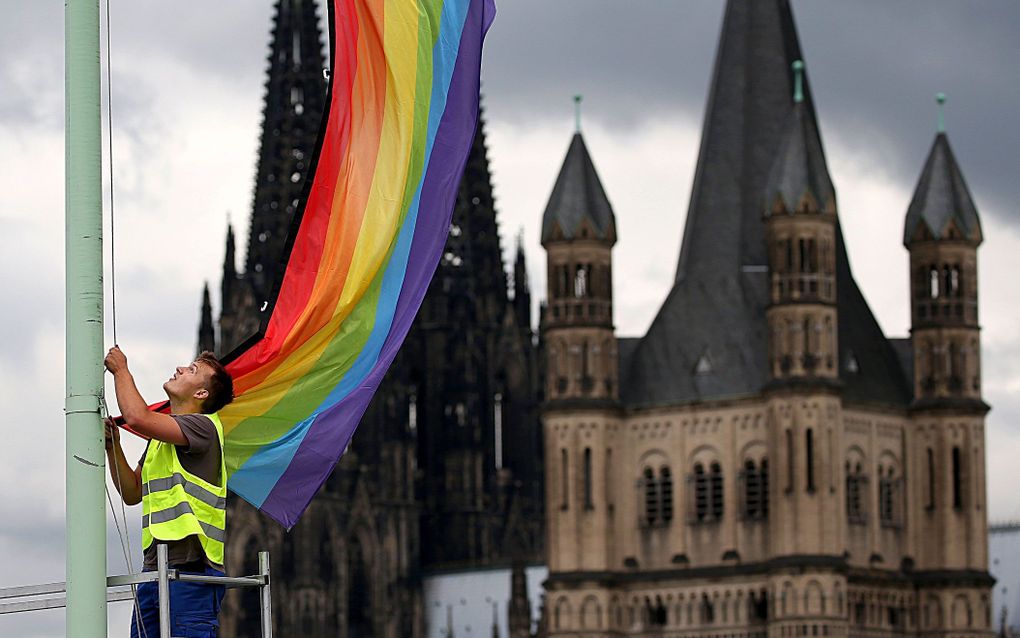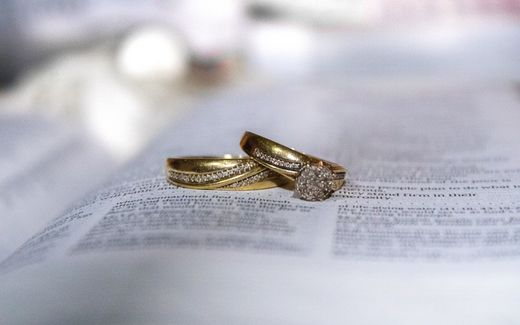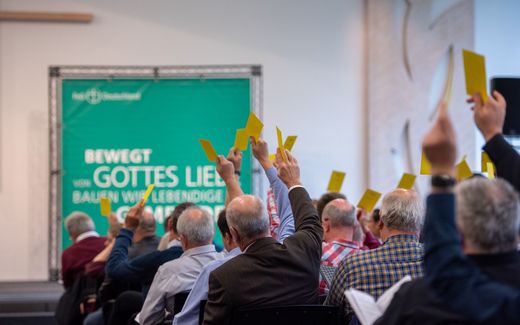Church can ‘bless’ gay relations, but different to marriages, says Dutch theologian

Rainbow flag next to a church in Germany. Photo AFP, Oliver Berg
Western Europe
The Dutch theologian and ethicist Prof. Ad de Bruijne advises Gereformeerde Kerken (Vrijgemaakt) (translated as Liberated Reformed Churches) to make a formal liturgy to ‘bless’ gay relations. But churches should not suggest that this relation is the same as a marriage union.
That is one of the conclusions of his new book "Verbonden voor het leven” (Connected for life) that will be published this week. In Nederlands Dagblad, he already gave an interview about the book.
Ad de Bruijne is official ecclesiological professor of ethics at the Theological University of Kampen/Utrecht from the Liberated Reformed Churches. One of his predecessors, Prof. Jochem Douma, coined the phrase “being so but not doing so”, in order to separate between the homosexual identity and practice. The official position of the Liberated churches is still that the homosexual practice is a sin. But hardly any local church really disciplines it when a couple comes to the church and wants to partake in the Holy Supper.

Gay relationships still differ from heterosexual marriages, De Bruijne argues. "There is something to the unity of male and female which cannot be found in same-sex relationships according to the Bible", he says, "namely two people who become one – the image of Christ and His Church. I propose to give gay relationships a different meaning. They are no less than marriages but still different."
The Bible rejects homosexuality. However, it is the question of whether these texts apply to us as our convictions about sexuality have changed. Dutch theologian Prof. Ad de Bruijne argues that we should look at the bigger picture of sexuality in the light of the Bible. "We cannot pretend that the homosexual identity does not exist."
“We see homosexuality as inseparable part of our identity”
De Bruijne does not reject any Bible texts that oppose homosexuality, he stresses. Yet, he thinks our modern time and age have changed our general view of sexuality. "We now see homosexuality as a crucial and inseparable part of our individual identity; a part of ourselves that we can hardly change by different behaviour", he says to the Nederlands Dagblad.
Even though sexuality of man and woman mirrors the unity between Christ and His Church, the Dutch theologian sees space for a connection between two homosexual partners. "In our united bond with Christ, to which the male-female relationship refers, a new unity of people arises in which male and female do not matter anymore. Just like marriage symbolises the united bond with Christ, a gay relationship shows something of the special connection of people to each other, which is possible through Christ."
Close friendship
Critics may argue that the theologian changes the Bible to his liking and adapts it to the post-Christian culture. However, De Bruijne points out that even conservative Christians already have different views than those at the time of the Bible. "Often they say to gays that you are allowed to have a close friendship, but no sex, because the Bible forbids it. That is already more progressive than what Paul says; he did not give that option."
Today's discussion on the ethics of homosexuality focuses too much on sexual intercourse, De Bruijne argues. "Being gay is also the longing for intimacy, fulfilment, a relationship, recognition. In that sense, they do not differ from heterosexuals." According to the theologian, sexuality in the Bible is meant for pleasure and happiness, among other things. In that light, he says, there is room for the sexual dimension in homosexual relationships.
New Testament
In former times, sexual reproduction was an essential part of intercourse, De Bruijne acknowledges. However, this aspect has decreased in relevance, he says. "That was already seen in the New Testament."
Related Articles






